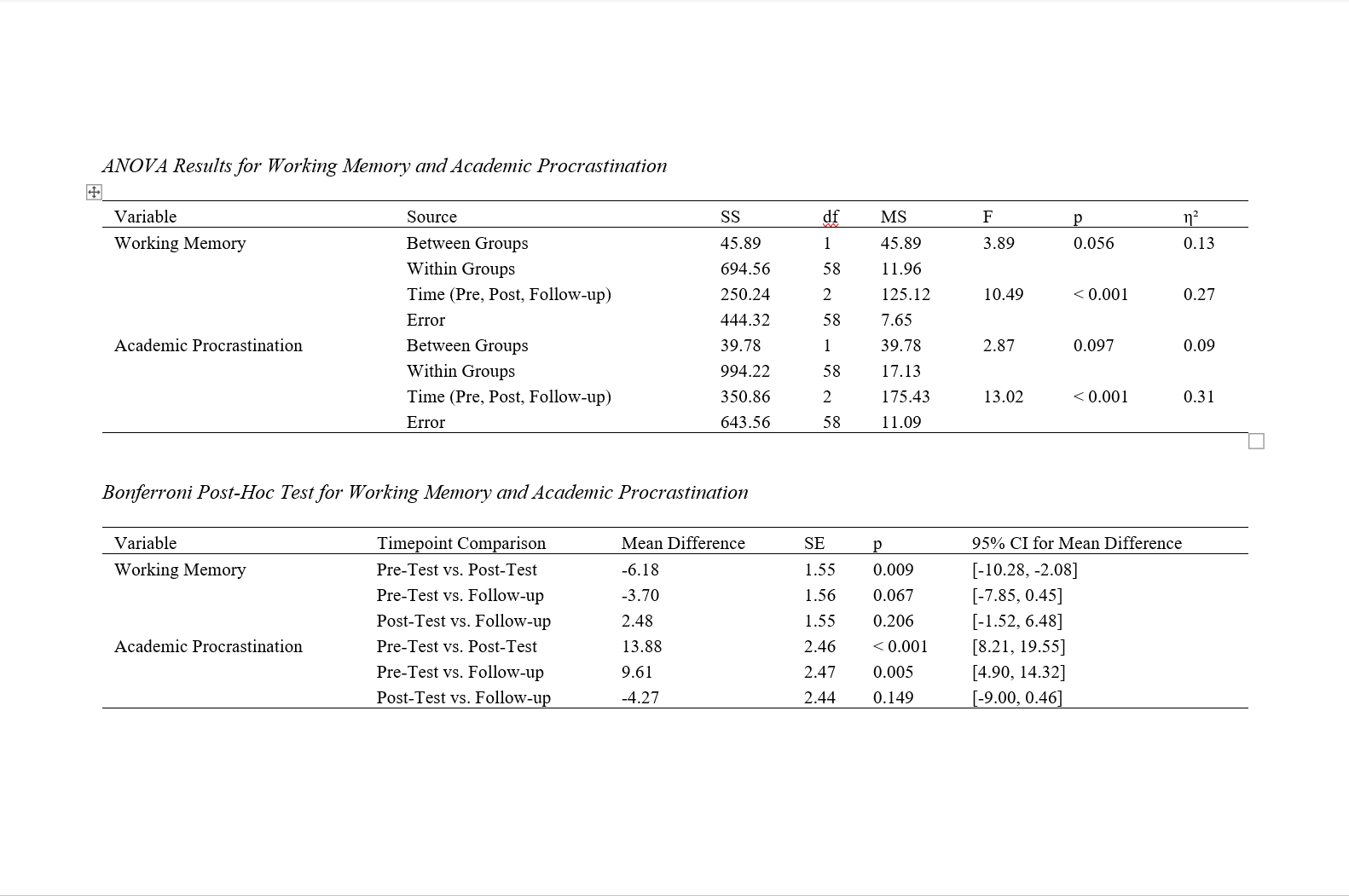The Effectiveness of Deep Learning Based on the Fullan Approach on Working Memory and Academic Procrastination in First-Year Secondary School Students
Keywords:
Deep learning intervention, Fullan approach, working memory, academic procrastination, middle school students, cognitive training, self-regulationAbstract
Objective: The objective of this study was to examine the effectiveness of a deep learning intervention based on the Fullan approach on improving working memory and reducing academic procrastination in middle school students.
Methods and Materials: A randomized controlled trial was conducted with 30 middle school students (15 in the experimental group and 15 in the control group) from Tehran. Participants were selected through convenience sampling and assessed at three time points: pre-test, post-test, and a five-month follow-up. The experimental group received an 8-session deep learning intervention, each lasting 90 minutes, designed to enhance cognitive and self-regulation skills. Working memory was measured using Daneman and Carpenter’s (1980) working memory test, and academic procrastination was assessed using McCloskey's (2011) procrastination scale. Data were analyzed using analysis of variance (ANOVA) with repeated measures, and post-hoc comparisons were performed using the Bonferroni test. The statistical analysis was conducted using SPSS-27.
Findings: The results showed a significant improvement in working memory and a reduction in academic procrastination in the experimental group compared to the control group. In the experimental group, working memory scores significantly increased from pre-test to post-test and remained high at the five-month follow-up. Additionally, academic procrastination scores significantly decreased after the intervention, with lasting improvements at the follow-up. The control group showed no significant changes in either variable. The results of the ANOVA revealed significant interaction effects for both working memory and procrastination (p < 0.05).
Conclusion: The deep learning intervention based on the Fullan approach was effective in enhancing working memory and reducing academic procrastination in middle school students. These findings suggest that cognitive training programs incorporating deep learning strategies can significantly improve academic behaviors and cognitive functions in adolescents.
Downloads

Downloads
Additional Files
Published
Submitted
Revised
Accepted
Issue
Section
License
Copyright (c) 2025 Fatemeh Heidari (Corresponding Author)

This work is licensed under a Creative Commons Attribution-NonCommercial 4.0 International License.








